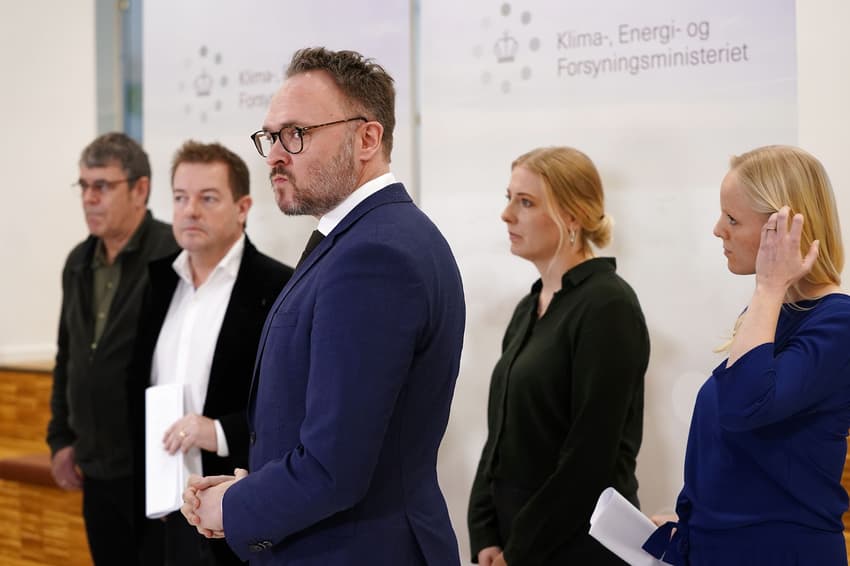Up to 70 Danes offer to pay energy money back to government

Between 40 and 70 residents of Denmark have contacted authorities because they want to voluntarily repay a 6,000-kroner sum paid out to eligible households as relief for high energy prices.
Despite the wishes of the individuals, the money cannot currently be repaid, the Danish Energy Agency (Energistyrelsen) told news wire Ritzau, after newspaper Ekstra Bladet reported that around 40-70 people had contacted the authority to this end.
The one-off 6,000 kroner payouts, agreed by parliament in March, were sent last month to over 400,000 households which meet the criteria set to receive the relief. They were intended to offset skyrocketing energy costs for households heated by gas ahead of winter.
Households with a collective pre-tax income of under 706,000 kroner were eligible for the one-off cash boosts. Additionally, the household should be primarily heated by individual gas heaters, electronic radiators or be located in a district heating area in which the heating is produced by at least 65 percent gas.
But due to inaccuracies in an online database that requires homeowners to self-report information on their home, including gas boilers, many people are believed to have received the cheques in error.
The government said in August it would investigate the issue. The form and results of the investigation are yet to be clarified.
Prime Minister Mette Frederiksen said at a briefing earlier this week that she did not regret the government’s decision to spend 2.5 billion kroner on the heating relief.
“We have not regretted providing targeted help but it is obviously regrettable that some problems have occurred in the process,” she said.
Energy Minister Dan Jørgensen said in comments to broadcaster TV2 in August that the government was aware of a risk errors could be made when parliament adopted the law needed to implement the payouts.
But the decision to pay money directly into recipients’ accounts was nevertheless taken “to get the money out there quickly”, he said.
The minister also said that the government would look into setting up a repayment scheme, but no further details of this have yet emerged.
Comments
See Also
Despite the wishes of the individuals, the money cannot currently be repaid, the Danish Energy Agency (Energistyrelsen) told news wire Ritzau, after newspaper Ekstra Bladet reported that around 40-70 people had contacted the authority to this end.
The one-off 6,000 kroner payouts, agreed by parliament in March, were sent last month to over 400,000 households which meet the criteria set to receive the relief. They were intended to offset skyrocketing energy costs for households heated by gas ahead of winter.
Households with a collective pre-tax income of under 706,000 kroner were eligible for the one-off cash boosts. Additionally, the household should be primarily heated by individual gas heaters, electronic radiators or be located in a district heating area in which the heating is produced by at least 65 percent gas.
But due to inaccuracies in an online database that requires homeowners to self-report information on their home, including gas boilers, many people are believed to have received the cheques in error.
The government said in August it would investigate the issue. The form and results of the investigation are yet to be clarified.
Prime Minister Mette Frederiksen said at a briefing earlier this week that she did not regret the government’s decision to spend 2.5 billion kroner on the heating relief.
“We have not regretted providing targeted help but it is obviously regrettable that some problems have occurred in the process,” she said.
Energy Minister Dan Jørgensen said in comments to broadcaster TV2 in August that the government was aware of a risk errors could be made when parliament adopted the law needed to implement the payouts.
But the decision to pay money directly into recipients’ accounts was nevertheless taken “to get the money out there quickly”, he said.
The minister also said that the government would look into setting up a repayment scheme, but no further details of this have yet emerged.
Join the conversation in our comments section below. Share your own views and experience and if you have a question or suggestion for our journalists then email us at [email protected].
Please keep comments civil, constructive and on topic – and make sure to read our terms of use before getting involved.
Please log in here to leave a comment.